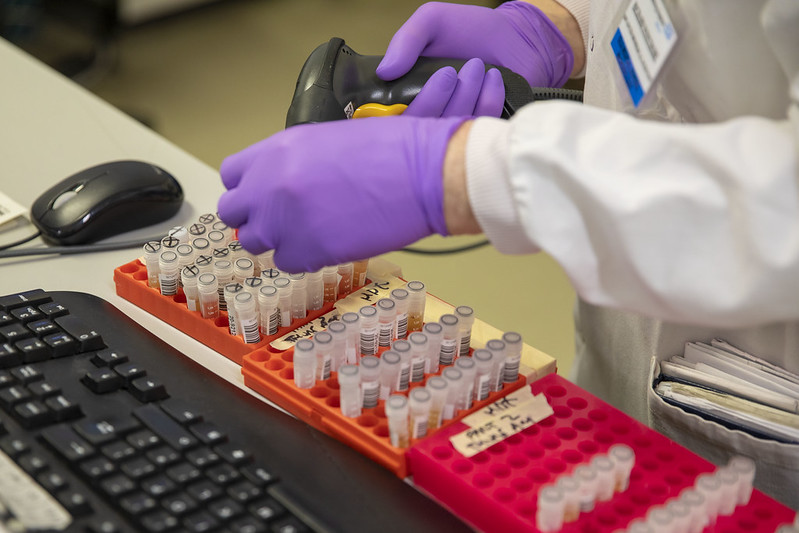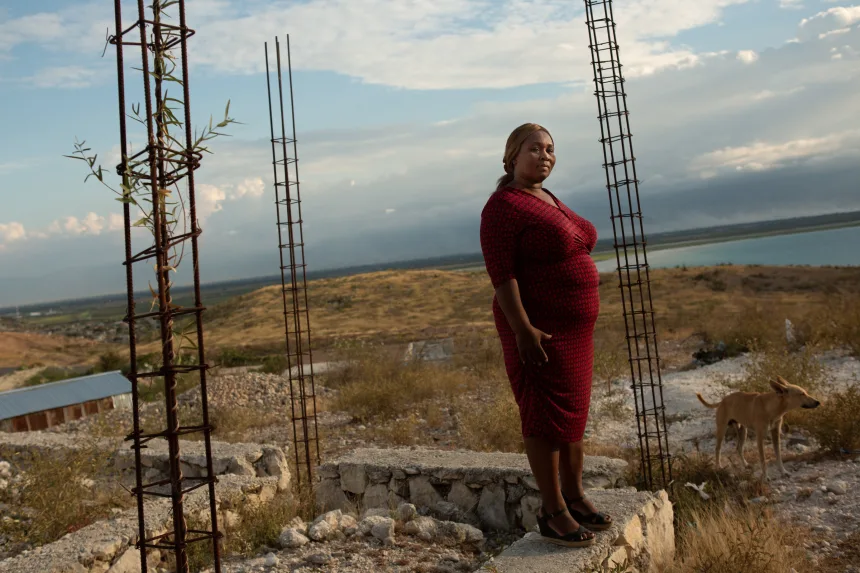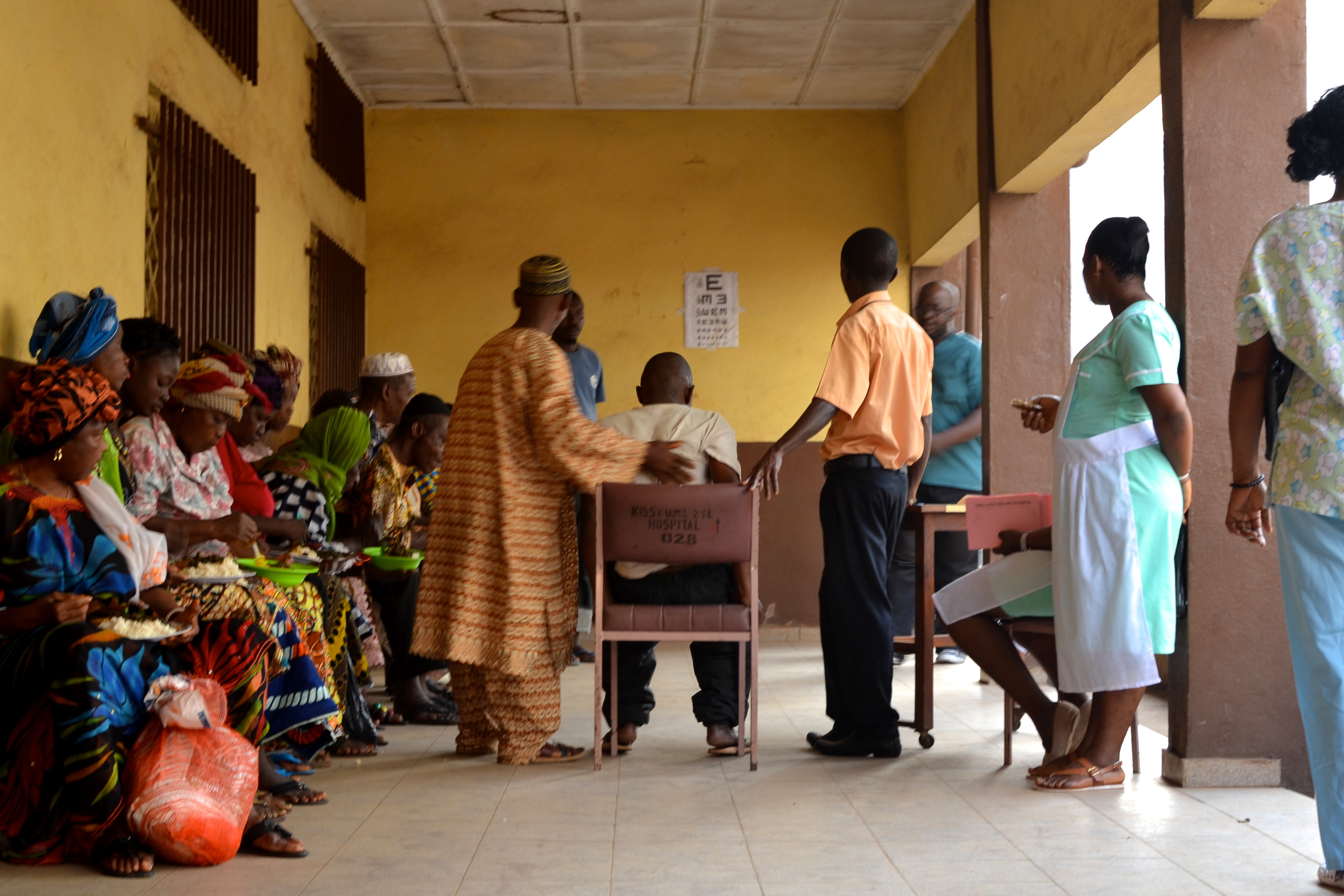
The novel coronavirus, also known as COVID-19 virus, has disrupted the world around us, from education to business to the economy, in addition to testing global health care systems. But what can previous epidemics teach us in the face of the current crisis? Here is a breakdown of Pulitzer Center health reporting and some lessons it can provide for tackling the coronavirus.
In “Can Math Be Used to Predict an Outbreak?” Mark Johnson and McKenna Oxenden report on how mathematical techniques have been used to study diseases, with examples being smallpox and cholera in 1760 and 1853, respectively, and more recently, Ebola, in 2014. According to Johnson and Oxenden, “a good model provides scientists with a picture of how the disease is likely to play out, where health care agencies should put their money and staff, and even whether it makes sense to close a country’s borders.”
A recent study by the Imperial College London highlights the role of models in studying and combating the novel coronavirus. One policy aspect of the outbreak has been lockdowns, as seen in China, France, Italy, and Spain, among others. Meanwhile, as cases continue to rise, particularly in Italy and the United States, several researchers and developers are exploring vaccines to fight the virus.
In “How South Africa, the Nation Hardest-Hit by HIV, Plans to "End AIDS",” William Brangham, Jason Kane, and Jon Cohen write about efforts to “find the people who are infected with HIV... persuade them to start treatment, and sustain that treatment.” In the case of the coronavirus, while vaccines are under development, a major issue has been detecting the disease—it can take from two to 14 days for symptoms to develop, and many young adults may not show any symptoms, being asymptomatic carriers. One aspect of the pursuit to end AIDS in South Africa was the expansion of medical services, in both terms of accessibility and scale. With the coronavirus, there has again been a push to not just increase testing, but also the capacity of medical systems, with China and South Korea, among others, offering key lessons.
When there was an outbreak of cholera in Haiti in 2010, 10 months after the earthquake that devastated the country, a similar issue emerged as the healthcare system initially struggled to handle the crisis. However, Haiti addressed the outbreak by setting up cholera clinics, testing patients at a mass scale, and treating them through oral rehydration, or an IV if necessary. Jacob Kushner and Alisson Shelley note there have been no new cases of cholera reported in the last 12 months, suggesting the crisis "appears to be over now."
In contrast, as Emily Baumgaertner reports for Foreign Policy, in Sierra Leone and West Africa, the Ebola crisis persists, because "some survivors still carry the active virus," and can thus be the source of another outbreak, without the virus being detected, much like with the coronavirus in young adults. In her story for The Atlantic, Baumgaertner writes about her experience with an Ebola health scare, and how the thought of potentially contracting and spreading disease can be terrifying for a reporter covering epidemics. Baumgaertner's anxiety resonates in the current crisis, as the comparisons drawn between the common flu and the coronavirus have led to confusion and paranoia about symptoms. This resource from the University of Alabama at Birmingham is useful in differentiating symptoms between COVID-19, the flu, and the common cold.
While there appears to be no end in sight for the coronavirus outbreak, scientists say our best bet is to 'flatten the curve,' and slow down the spread of the virus. To conclude, below are some major tips, compiled using guidelines from the Center for Disease Control (CDC) and the World Health Organization (WHO):
- Practice social distancing. Stay indoors as much as possible
- Avoid touching your mouth, eyes, and nose
- Wash your hands regularly with soap and water for a minimum of 20 seconds
- If you don't have access to soap, hand sanitizer with 40 percent or more alcohol works
- Disinfect high contact surfaces in your home (door knobs/handles, desks, countertops, etc. also - your cellphone!)
- If you are experiencing symptoms of COVID-19, consult a medical professional

Project
Ending AIDS
An on-the-ground look at efforts in Africa and the United States to end the HIV/AIDS epidemic.

One decade after the deadliest natural disaster of the century, Pulitzer grantees return to examine...

Ebola survivors could be carrying live Ebola virus in their eyes. Many of them are going blind, but...




















